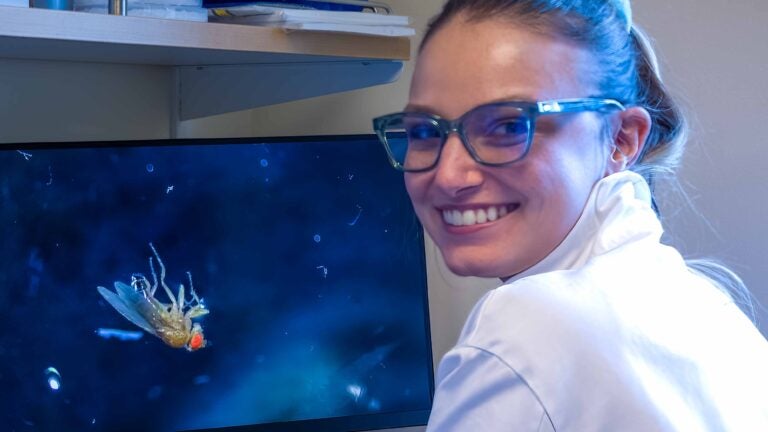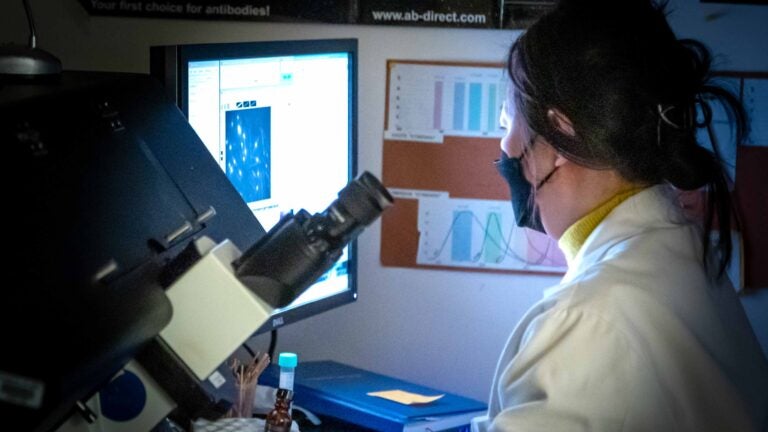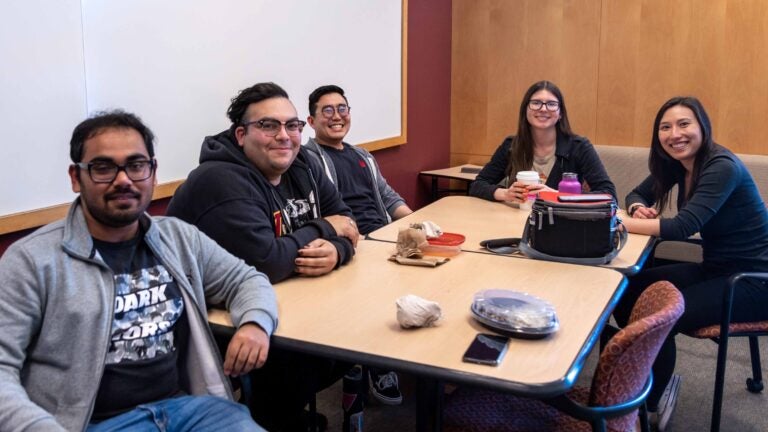Introduction
Students in the Ph.D. program receive broad training in how biological systems function at the level of nucleic acids and proteins, cells and development, and evolution of populations and species and will receive a PhD in Molecular Biology. Faculty from the Molecular and Computational Biology Section participate in the program, offering access to diverse expertise and research programs. Approximately 75 students are enrolled in the graduate program and conduct research with faculty members. Incoming students can be admitted through one of two tracks – an Open Admission Track and a Direct Admission Track. Students admitted through the Open Admission track rotate through three research labs in their first year, selecting a PhD advisor in the Spring of their first year. Students admitted through Direct Admission have already identified their research advisor before applying to the program and begin working in the lab of their advisor in the Fall of the first year. Additionally, during their first and second year, students take a core curriculum that lays the foundation for more advanced study, while also learning skills such as critical reading of the scientific literature, grant writing, data analysis using R, and oral presentation skills.
Faculty research areas
Aging
Biochemistry
Cancer Biology
Cell Biology
Chemical Biology
Evolutionary Biology
Genetics
Mechanisms of DNA replication, repair, and genome stability
Neurobiology
Regulation of gene expression
Structural Biology
Synthetic Biology
Systems Biology
General statistics
Number of applicants: approx. 165 per year
Number of offers extended: approx. 25 (about 15% of applicants)
Number of offers accepted: 14
Time to completion: 6 year average
Teaching Assistant Requirement: Minimum 1 semester TAing
Funding: Our department provides funding for the first five years of your program through a variety of teaching and research assistantships, fellowships, and scholarships.


